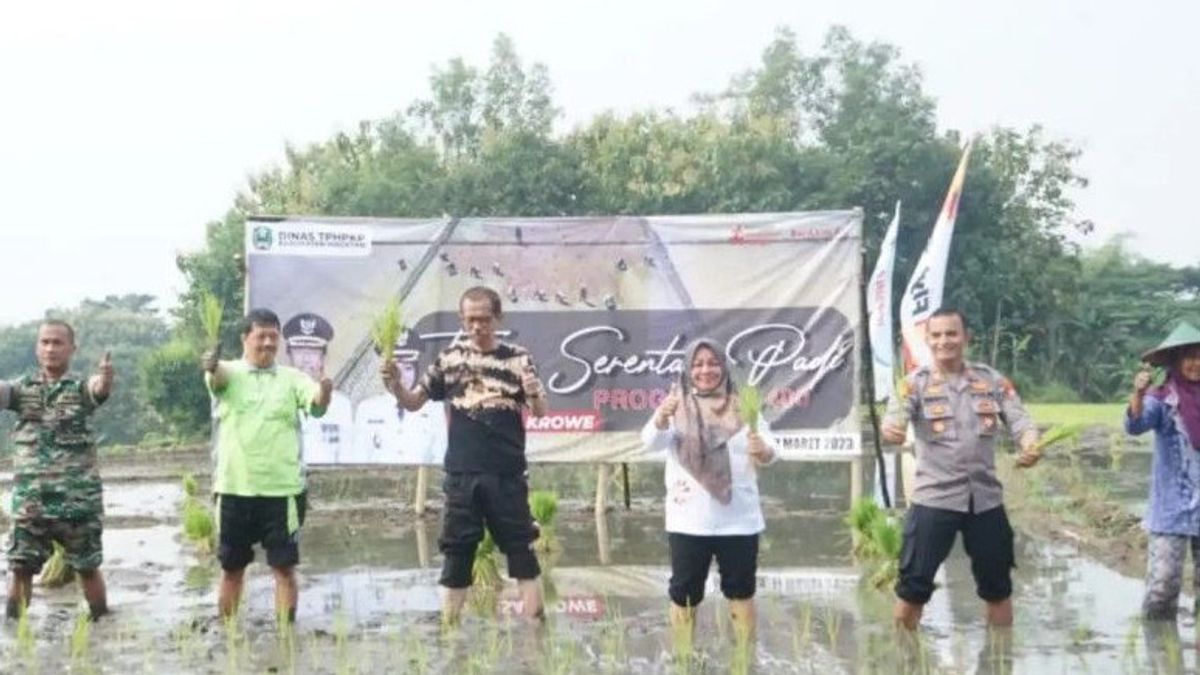MAGETAN - The Government of Magetan Regency, East Java, is conducting a trial of the Padi 400 Plantation Index (IP), namely rice planting four times a year, in order to increase rice production and support the government's efforts to increase food security.
Head of the Food Crops Service of Horticulture Plantation and Food Security (TPH PKP) Magetan Uswatul Chasanah in Magetan, Saturday, said the trial was carried out on a 2 hectare rice field in Krowe Village, Lembeyan District. And the planting declaration was carried out by Magetan Regent Suprawoto together with Forkopimda representatives on Friday, March 17.
"The IP Padi 400 program is following up on programs from the Ministry of Agriculture regarding efforts to increase national rice stocks to be more resilient in the face of the impact of the COVID-19 pandemic and climate change," said Uswatul Chasanah.
The choice of trial locations in Krowe Village is based on several factors such as neutral soil pH and water irrigation that continue to flow throughout the year. It is hoped that with the right provision of compost and good coaching, the fields can be planted up to four harvests.
He hopes that the IP Padi 400 trial in Krowe Village can be successful and increase rice productivity in Magetan. If successful, this program will serve as a pilot and be implemented in other rice fields in Magetan.
The IP Padi 400 program is one of the government's efforts to deal with climate change and maintain food supplies by increasing the Padi Plantation Index to 400. This program uses technological breakthroughs through the support of Integrated Plant Management (PTT) and Integrated Pest Control (PHT).
In the IP Padi 400 concept, on rice fields that have irrigation throughout the year, rice planting can be carried out four times a year. This program is expected to increase rice production so that Indonesia can achieve food self-sufficiency and no longer need for rice imports. In addition, this program can maximize the use of water resources and sunlight in the agricultural sector.
The English, Chinese, Japanese, Arabic, and French versions are automatically generated by the AI. So there may still be inaccuracies in translating, please always see Indonesian as our main language. (system supported by DigitalSiber.id)












